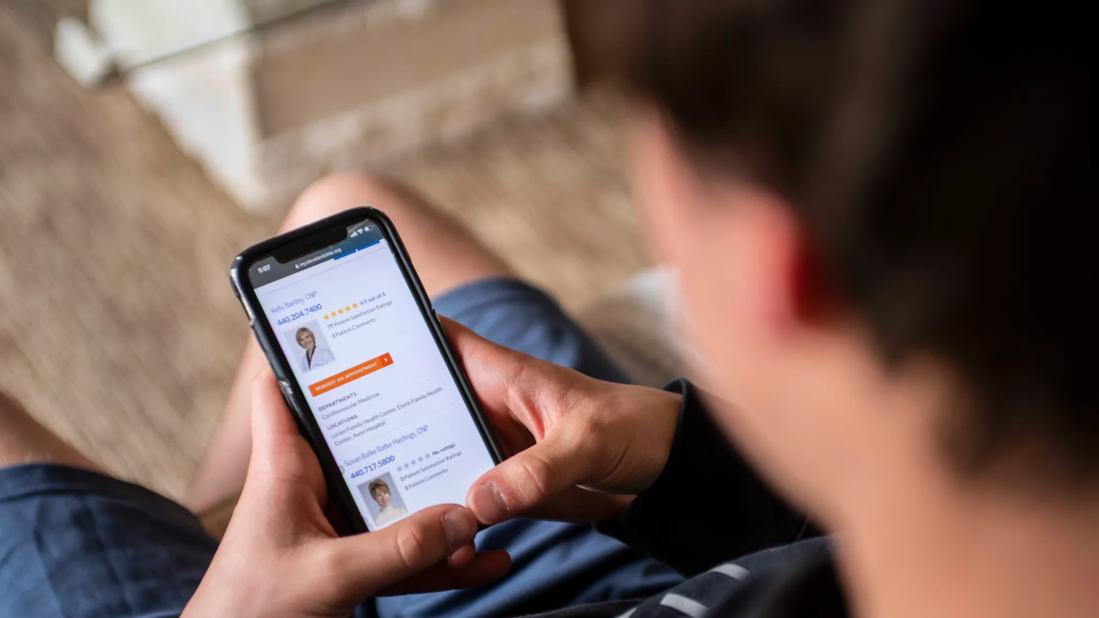E-coaching program is tailored for those with the disease

Image content: This image is available to view online.
View image online (https://assets.clevelandclinic.org/transform/ee9b6c29-1687-4fc4-ac11-811aa895c1ef/CCC-2071830_04-02-21_004_DG)
Virtual coaching
By M. Elaine Husni, MD, MPH, Leonard Calabrese, DO, and Anthony Fernandez, MD, PhD
Advertisement
Cleveland Clinic is a non-profit academic medical center. Advertising on our site helps support our mission. We do not endorse non-Cleveland Clinic products or services. Policy
The association of psoriatic disease with depression and anxiety has long been established, but providing mental health support for patients with psoriatic disease remains a significant challenge. Despite treatment advances, up to 20.7% of psoriatic disease patients report poor mental health compared to 7.1% of the general population. Increasing evidence suggests that along with medication and talk therapy, optimizing sleep, physical activity, stress and nutrition may improve mental well- being.
While numerous online health programs have emerged to help patients strengthen these behaviors, very little exists for those with psoriatic disease. Now a new Cleveland Clinic trial is studying a 12-week, web-based e-coaching program called Immune Strength, which is tailored for those with psoriatic disease. Immune Strength uses self-directed patient empowerment to enhance mental wellness.
One hundred participants with psoriatic diseases are randomly assigned to the 12-week Immune Strength program (intervention group) or to a waiting list (control group). Control group subjects receive access to Immune Strength 12 for weeks. Program participants have 24/7 access with weekly contact to a certified health coach. Support teams include mental health counselors, dietitians, sleep psychologists and exercise physiologists.
The program’s patient content focuses on four areas:
• Stress management. Patients receive education on mindfulness and meditation practices to reduce stress; activation practices to reduce and manage pain and fatigue; positivity; guided imagery.
Advertisement
• Sleep. Patients receive directed education on insomnia, tracking sleep quality, managing sleep hygiene and the link between sleep and health.
• Nutrition. Patients receive education on topics such as diet and inflammation, eating habits, stress and food, and mindful eating.
• Exercise. Patients receive guidance on exercises tailored to their fitness level, focusing on strength, range of motion and chair yoga, plus education on the disease-related benefits of exercise.
Changes in mental health burden will be measured using well-validated measures of mental health as the primary outcome at baseline and at the end of the study. Secondary outcomes will include validated self-efficacy and patient-reported outcomes. The goals of the study are to determine the improvement of behavioral health, feasibility and practicality of an e-coaching program in patients with psoriatic diseases.
Advertisement
Advertisement
Husni Lab focuses on transforming management and treatment
Multiple comorbidities are associated with pediatric psoriasis
Making a difference by putting empathy into action
Structured interventions enhance sleep, safety and caregiver resiliency in high-acuity units
An unexpected health scare provides a potent reminder of what patients need most from their caregivers
Automating routine medical coding tasks removes unnecessary barriers
Experts offer hands-on support and education
Input from these central stakeholders is leading us to design for healing and hope